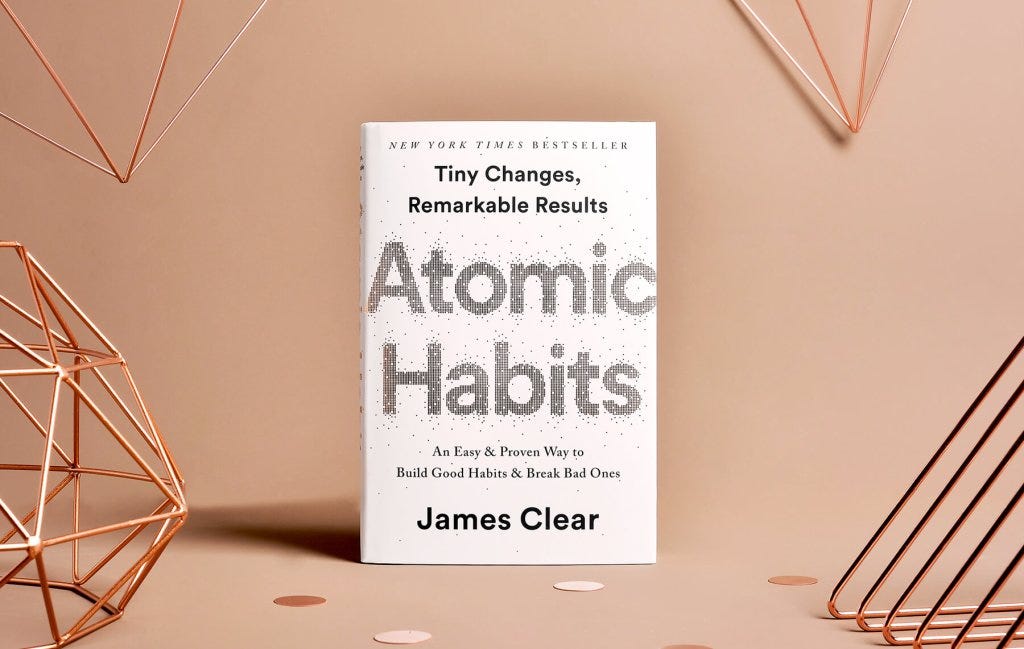"Your identity emerges out of your habits. Every action is a vote for the type of the person you wish to become." ~ James Clear
I have had the dream of becoming a published writer for many years. To achieve this dream, I had joined a writing workshop conducted by a published writer. She mentioned that a habit of writing 400 words per day would go a long way in finishing a book (an average book is around 80,000 words long).
All of that seemed interesting, but I never went ahead and did it. I did not develop the habit of writing everyday. Even if I did, it was a random journal about my day. Definitely, I was not voting for the person I wanted to become. Will I ever, fulfil this dream? I don't know. But I have decided to be regular with this blog. Let's see where it goes.
My writing mentor's suggestion is very similar to that of the bestselling book 'Atomic Habits'. The gist of the book is 'be regular'. Now, how did such a small sentence turn into an entire book? Well, it is fucking hard to be regular at anything (except alcohol, smoking or other bad habits).
James Clear, the author, takes pains to teach his techniques with examples and stories, which are often relatable. These stories and techniques can go a long way in building habits or 'being regular'.
The story of the British cycling team which went on to win gold medals at Olympics is a case in point. James explains how the team made tiny improvements in several domains and eventually emerged as champions. Though we might look down upon small improvements in isolation, they make a huge difference over a period of time. James says :
"Time magnifies the margin between success and failure. It will multiply whatever you feed it. Good habits make time your ally. Bad habits make time your enemy."
Also, several small improvements can make a large difference when implemented together. This idea was crucial in ensuring the success of the British cycling team. By the time I had finished this chapter, I was eager to know more.
Forget About Goals, Focus on Systems Instead
This is another key takeaway from this book. Instead of trying to be a successful person, or a writer, we need to focus on the system of habits that would lead us towards that goal. Most of us end up focusing on the goal.
Few months back, I tried to lose the weight I had gained during the coronavirus lockdown. I was hoping that I would shed weight if I cycled 40kms everyday. This was not accompanied with any change in my diet. In fact, I had never taken my diet seriously.
Everything changed when I enrolled to a gym and took the guidance of a trainer. The trainer told me that exercise won't make a huge difference if one doesn't follow a good diet. He was right. I had lost only one and a half kgs after cycling almost 1500 kilometres. That was pretty inefficient.
The change came only when I focused on the system required to lose weight rather than lose a certain number of kgs. This learning can be used in any scenario.
Outcome-based habits vs Identity-based habits
Us seeking an outcome can lead to a change in our identity. But, changing our identity can also change our habits. This is a key takeaway from the book. "I am trying to quit smoking" is very different from saying "I am not a smoker". Probably, I might write more often if I told myself 'I am a writer'.
But the identity-based approach has made an impact on me already. Identifying myself as a 'fit person' has made helped me maintain my diet and workout regularly. These are the major takeaways from the book.
Rest of its contents can be reduced to an algorithm or an infographic based on your convenience. James talks about a four step process that could help you build a habit.
Make it obvious
Make it attractive
Make it easy
Make it satisfying
Writing more about these four steps would probably not motivate you to pick up the book and read. So, I will skip the details. No, I am not going to use the ' this book is a must-read' cliche. If you grasp the essence of the book and implement the book's suggestions in your daily life, you can build great habits. So, you need not read this book to build atomic habits.


